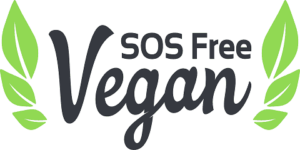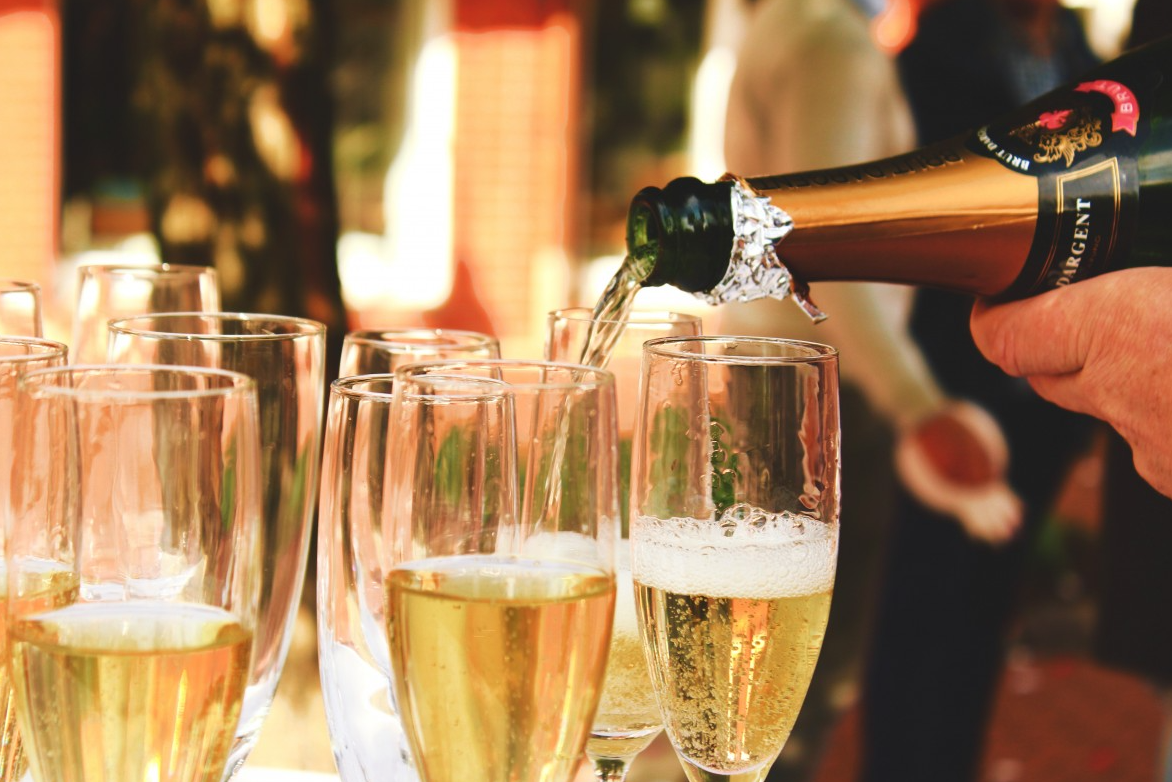Last Updated on April 23, 2023 by admin
For weddings, on New Year’s Eve, and for other celebrations, most people pop the top off a bottle of champagne and fill everyone’s glasses. You’d hate to miss out on this tradition because you’re vegan, but you’re not sure if you can drink champagne now. Can you?
Champagne should be allowable for vegans, but it very much depends on the variety. Some brands produce champagne with ingredients such as skimmed milk, isinglass, egg whites, casein, and/or gelatin, none of which are vegan-friendly.
Ahead, we’ll cover the types of champagne and delve deeper into the ingredients of this French sparkling wine so you can decide when it’s okay to drink and when you might have to pass. You’re not going to want to miss it!
The Types of Champagne
Before we can discuss whether champagne is allowable for vegans, it helps to go over the various types. There are seven varieties of champagne in all. Here’s an overview.
Champagne Blanc de Blancs
This chardonnay champagne is white and has a light, fresh flavor. Its base is cepage, a French varietal wine.
Champagne Blanc de Noirs
Grapes such as Pinot Meunier and Pinot Noir are the only varieties used for champagne blanc de noirs. The odor of this variety of champagne is quite intoxicating.
Champagne Rose
The delicate color of champagne rose is much beloved. Pinot Meunier and Pinot Noir grapes are used to make this appealing champagne.
Champagne Demi-Sec
With more sugar than champagne brut, champagne demi-sec may contain as many as 24 grams of the sweet stuff in a bottle. It’s no wonder this variety is a dessert champagne.
Champagne Brut Millesime
The word “millesime” means vintage in French, mostly because this champagne needs five years in a cellar to mature before it’s sold to the public.
Champagne Brut
The last type of champagne is champagne brut, which is low in sugar and ideal for accompanying a meal.
What’s in Champagne? Can Vegans Drink Champagne?
Like when making wine, champagne is reliant upon grapes, often the Pinot Noir variety but not exclusively. The grapes then undergo fermentation. During this process, ingredients like yeast and liquer de tirage are incorporated. Liquer de tirage is melted cane sugar.
As fermentation progresses, liqur d’expedition gets added, which is a mixture of brandy, still wine, and cane sugar.
If your champagne follows the above production process to the letter, then you should be in the clear to sip a glass every now and again as part of your vegan diet.
A handful of ingredients can be used in some champagnes that aren’t good for vegans. Here’s the rundown.
Skimmed Milk
Since dairy is omitted from the vegan diet, any champagne with skimmed milk is one that you’ll have to skip.
Isinglass
We’ve discussed isinglass on this blog before. If you’re not familiar, isinglass is a fish gelatin that can clarify some ales. That’s why it’s a popular ingredient in beer, which vegans will omit considering that isinglass is an animal byproduct.
Although you’re less likely to come across isinglass in champagne, some varieties do use this fish bladder ingredient.
Egg Whites
Vegans also don’t eat eggs, including both the whites and the yolks. If your champagne has egg whites as an ingredient, find a different drink to have instead.
Casein
A type of phosphoprotein, casein is yet another no-no for vegans. It may be a healthy protein, but casein comes from sheep or cow milk. Casein is also a primary ingredient in cheese, which is why vegans skip that.
In champagne, casein is used as a fining agent, which means it calibrates the aroma or flavor of the champagne, boosts the clarity, or filters out organic compounds.
Gelatin
Sometimes labeled as agar agar, other times gelatine, and in some cases just plain gelatin, you won’t ever want to eat this stuff again once you know how it’s made. To get the jelly-like product, animal bones, ligaments, tendons, and skin get boiled in water.
The Nutrition of Champagne
Are you curious about the nutritional value of champagne? Don’t expect a lot here, but champagne isn’t exactly an unhealthy drink compared to many other alcoholic beverages out there.
Per one glass that’s 4.1 fluid ounces, here is the nutritional information of champagne:
- 78 calories
- 0 grams of saturated fat, including trans-fat, polyunsaturated fat, and monounsaturated fat
- 0 milligrams of cholesterol
- 2 grams of carbohydrates
- 2 grams of protein
Conclusion
Champagne is a derivative of wine that should be safe for vegans. That said, a slew of ingredients could be hiding in your bottle of champagne that you can’t ingest, among them dairy, eggs, animal products, or animal byproducts. For that reason, we recommend you always check the label before popping that champagne bottle!
Recent Posts
You’ve read this blog and it’s certainly piqued your curiosity about what it means to be an SOS-free vegan. You’ve learned about this branch of veganism from our introductory post and maybe...
Vegans Desserts! Few things taste better than a refreshing ice cream cone on a hot summer’s day. Now that you’ve given up sugar and oil (not to mention salt) and gone vegan though, you may feel...

